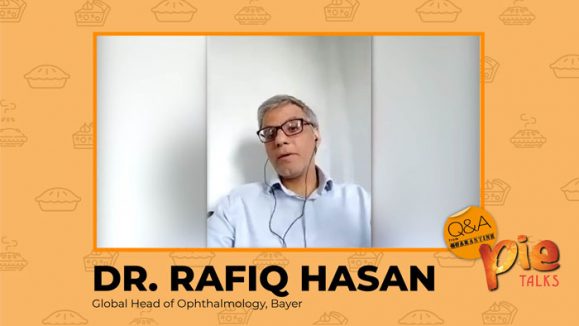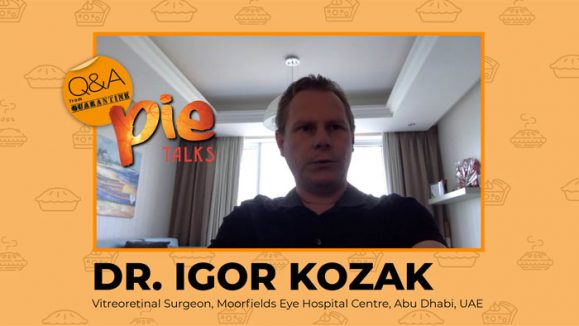Undoubtedly, the COVID-19 pandemic has fundamentally affected the lives — and livelihoods — of millions of people around the world. Even we at Media MICE have felt its direct impact: CEO and Publisher Matt Young tested positive for the novel coronavirus in March. He has now — thankfully — tested negative for COVID-19 and continues to recover in home quarantine.
However, his time spent in quarantine was not in vain. In fact, it inspired our latest video series: the aptly titled Q&A from Quarantine. In the first video of the series, Matt spoke with Malaysian retina specialist Dr. Kenneth Fong, managing director of OasisEye Specialists in Kuala Lumpur, about COVID-19 and its repercussions in the industry.
The Impact on Malaysian Ophthalmology Clinics
“We have stopped all non-urgent cases,” said Dr. Fong. The clinic’s operating caseload has been drastically reduced to emergencies only. “I’m only working on Monday, Wednesday and Friday.”
As any ophthalmologist will tell you, this is a huge workload reduction — but there is a smart reason for this: The clinic’s staff has split into two teams and work on alternate days. “There’s a high risk of one of us getting infected . . . we don’t want the whole center to be shut down if we all need to be quarantined,” he explained.
So, what kinds of cases is Dr. Fong still seeing?
“We are seeing all the usual: red eyes, infections . . . patients who have lost vision,” he said, noting that he did an urgent retinal detachment surgery recently. Dr. Fong also continues to administer intravitreal injections for AMD patients and sees postoperative follow-up patients.
In addition, he said that in Malaysia, clinicians have to assume any patient presenting with conjunctivitis has COVID-19. “You just don’t know: When a patient comes in with viral conjunctivitis, it looks exactly the same — regardless of what virus is causing it.”
He said that reports have shown that about 5% of COVID-19 positive patients list red eye or conjunctivitis as a symptom . . . and even though the clinic is receiving fewer patients, there is always a chance for infection. To help, companies like Carl Zeiss Meditec (Jena, Germany) and Topcon (Tokyo, Japan) are now creating plastic screens to protect ophthalmic equipment.
Dr. Fong constructed his own screen to shield his clinic’s slit lamp: “We’ve never done this before, but because of this coronavirus we decided that we needed to protect ourselves.”
Planning for a Post-COVID-19 World
Until there is a vaccine or therapy for COVID-19, it will likely not be “business as usual” for some time to come. The antimalarial drug hydroxychloroquine is an optimistic option, however, its efficacy and safety for treating COVID-19 isn’t proven.
Dr. Fong is hopeful that the situation will stabilize by June or July, but with certain qualifications: strict social distancing, active surveillance and mass testing.
In the meantime, ophthalmic organizations like the Malaysian Society of Ophthalmology (MSO) have stepped up to support and provide information to their members. As the MSO President, Dr. Fong said: “We have given them advice about personal protective equipment; on how to run a screening center at their clinic — we screen all our patients.” The MSO has also donated PPE and provides financial support to local hospitals treating COVID-19 patients. The learning continues as well: “We have just done our first webinar on COVID-19 this week; next week we will have a few more seminars for members.”
Is Virtual Reality the “New” Reality?
Speaking of seminars — and international conferences — who knows when the next one will realistically occur. As of now, most societies have either postponed or completely scrapped their 2020 meetings, while a hopeful few (like AAO 2020, slated for mid-November in Las Vegas, Nevada, U.S.) are still planning to proceed.
Dr. Fong said that COVID-19 will have a huge impact on these international meetings as a whole.“[In the future] I think a few major international meetings will have to continue like APAO, AAO and the main European meetings . . . but a lot of the smaller satellite meetings or single specialty meetings will probably be scaled down.”




